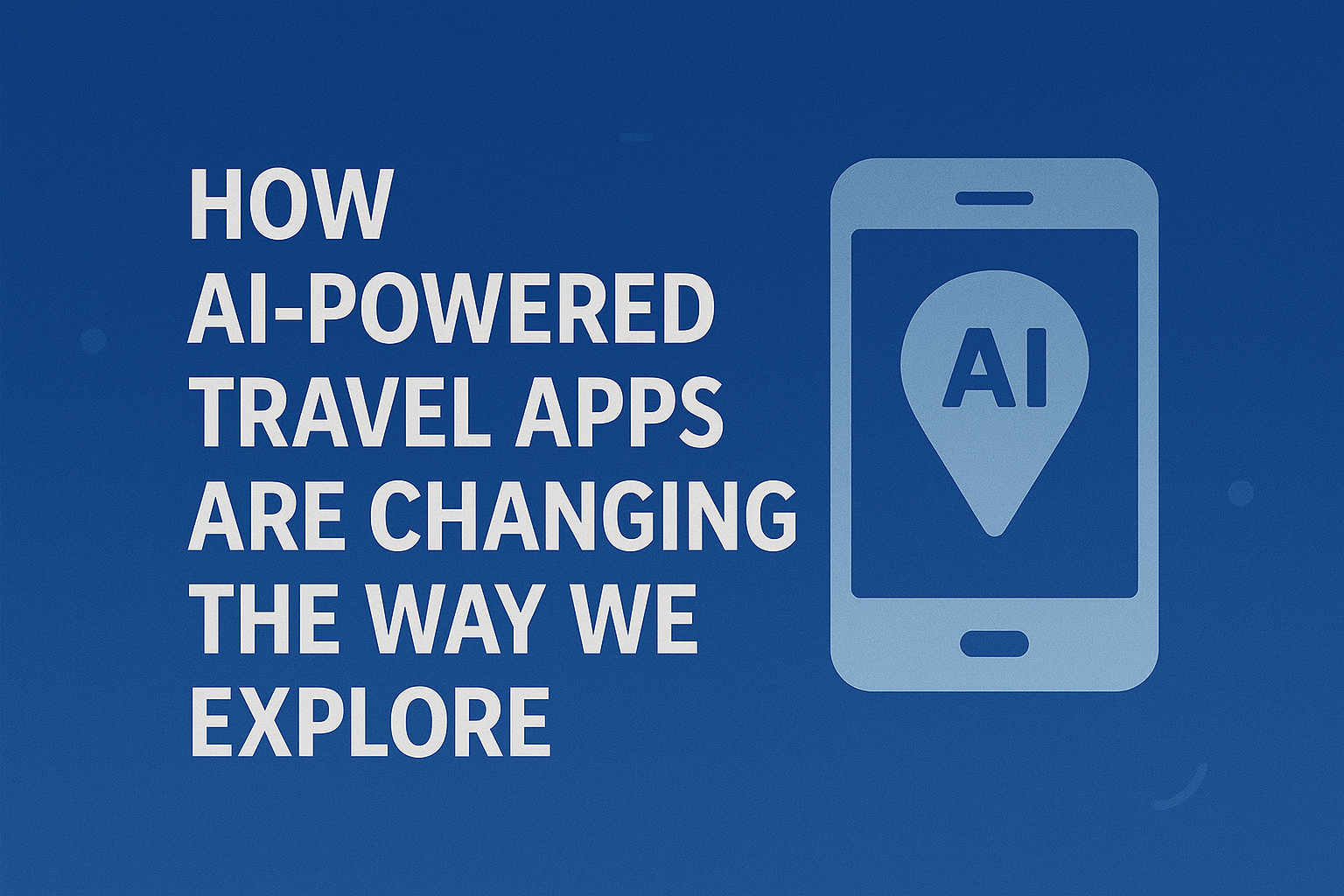Introduction
AI-powered travel apps in 2025 have completely transformed how travelers plan and enjoy trips. By analyzing personal preferences, historical data, and current trends, these apps create smarter and safer travel experiences. Travelers can now receive real-time guidance, dynamic alerts, and personalized suggestions.
1. Personalized Travel Recommendations
Modern AI apps analyze user behavior, past trips, interests, and budget to suggest personalized destinations, activities, and accommodations.
- Key Points: Tailored destination suggestions, local attractions, and hotel/restaurant tips.
- Example: TripAdvisor recommends hidden gems and offbeat attractions based on past trips.
2. Smart Itinerary Planning
AI planners automatically create day-to-day schedules optimized for your preferences, time, and local events.
- Key Points: Optimized travel routes, time management, multi-city planning.
- Example: TripHobo builds multi-day itineraries with estimated travel times, attraction durations, and breaks.
3. Real-Time Language Translation
AI translation eliminates language barriers by offering live conversation translation, text recognition, and speech-to-text functionality.
- Key Points: Instant translation for conversations, menus, signs.
- Example: Google Translate translates text instantly using your camera, speech, or typing.
4. Dynamic Pricing Alerts
AI tracks flights, hotels, and tour prices and predicts the best time to book, notifying users of price drops.
- Key Points: Predictive alerts, cost-saving recommendations, flexible bookings.
- Example: Hopper notifies users when flight prices are at their lowest.
5. Seamless Navigation and Local Insights
AI-powered maps and navigation apps provide real-time traffic updates, optimized routes, and local attraction recommendations.
- Key Points: Smart routing, local event suggestions, personalized exploration tips.
- Example: Google Maps offers AI-based suggestions for nearby restaurants, events, and attractions.
6. Virtual Travel Assistants
AI chatbots act as personal travel assistants, handling bookings, notifications, and general inquiries 24/7.
- Key Points: Instant assistance, booking support, personalized travel advice.
- Example: Kayak virtual assistant helps book flights and accommodations directly via AI chat.
7. Enhanced Safety and Alerts
AI monitors environmental, political, and health risks, alerting travelers in real-time for safer trips.
- Key Points: Safety notifications, route recommendations, local emergency alerts.
- Example: TripIt sends alerts for flight delays, weather changes, and emergency situations.
8. Augmented Reality Travel Experiences
AR features overlay information on historical sites, museums, and city streets, creating interactive and immersive experiences.
- Key Points: Interactive tours, educational overlays, immersive exploration.
- Example: TimeLooper allows travelers to experience historical events at landmarks using AR.
9. Contactless Travel Services
AI enables keyless hotel entry, touch-free check-ins, and voice-activated services, reducing physical interactions and increasing safety.
- Key Points: Streamlined boarding, touch-free hotel access, voice-controlled service.
- Example: Hotels use AI-powered kiosks for check-in and room access via mobile devices.
10. Smarter Travel with AI Learning
AI apps learn from traveler behavior to make future recommendations more accurate and personalized.
- Key Points: Personalized future trips, behavior-based recommendations, improved AI algorithms.
- Example: Apps like Utrip remember user preferences and suggest new destinations or activities accordingly.
11. AI Travel Roadmap for 2025 Travelers
Steps to leverage AI for smarter trips:
- Day 1-5: Install AI travel apps and explore features.
- Day 6-10: Input travel preferences and budget for personalized recommendations.
- Day 11-15: Test itinerary planning and navigation features for real trips.
- Day 16-20: Use AI assistants for bookings, alerts, and translations during travel.
- Day 21-25: Analyze AI feedback for next trip optimization.
- Day 26-30: Explore advanced features like AR experiences, dynamic pricing alerts, and contactless services.
12. Pros and Cons of AI Travel Apps
| Pros | Cons |
|---|---|
| Personalized travel recommendations | Reliant on internet connection |
| Time-saving itinerary planning | May reduce spontaneous exploration |
| Dynamic pricing and cost savings | Privacy concerns for personal data |
| Real-time alerts for safety and travel changes | AI errors may occur, requiring human judgment |
Final Thoughts
AI-powered travel apps are revolutionizing travel in 2025. They provide personalized recommendations, optimize itineraries, enhance safety, and make travel seamless. By embracing these tools, travelers can enjoy smarter, safer, and more memorable journeys.
Related Posts
- Must Learn Programming Languages in 2025
- website To learn Coding in 2025
- Amazing Facts That How AI is Changing Our World
Frequently Asked Questions
Are AI travel apps safe to use?
Yes, most AI travel apps follow strong security and privacy protocols.
Can AI really help save money on trips?
Yes, AI tracks dynamic pricing and alerts users to the best deals.
Do I need internet access for AI travel apps?
Some features require internet, but offline maps and basic translation are often available.
Can AI plan multi-destination trips?
Yes, AI itinerary planners optimize routes, timings, and accommodations for multi-city travel.
Are AI travel assistants reliable?
Generally, yes. They provide guidance, booking help, and real-time alerts, but human discretion is still advised.
